Archival and field work
In the segment of collection and processing of material, six basic categories should be distinguished: (i) the gramophone records themselves in physical form; (ii) archival material on the work of the three companies; (iii) sales catalogs and similar printed materials; (iv) newspaper clippings about the three record companies and their releases; (v) material that attests to the links between the record industry and other areas of the music industry; (vi) testimonies of the living witnesses from the periods in question as well as collectors. In Croatia, as far as we currently know, relevant archival material is stored in institutions in Zagreb, Osijek, Rijeka, and Split. Archival work outside of Croatia will include archival holdings in Belgrade, Ljubljana, and Prague.
See: Report (Cro)
See: Report
See: Report (Cro)
See: Report (Cro)
See: Report (Cro)
See: Report (Cro)
See: Report (Cro)
See: Report (Cro)
See: Report (Cro)
See: Report (Cro)
See: Report (Cro)
See: Report (Cro)
See: Report (Cro)
See: Report (Cro)
See: Report (Cro)
See: Report (Cro)
See: Report (Cro)
See: Report (Cro)
Workshops with experts from abroad
On Thursday and Monday, May 6 and 10, 2021, we organized two workshops on the topic of established norms within classical music performances. The workshops were led by musicologist Daniel Leech-Wilkinson, Professor Emeritus at King’s College in London. From 2004 to 2009, Leech-Wilkinson was a leading figure in a five-year “Expressivity in Schubert Song Performance” project at the Center for the History and Analysis of Recorded Music (CHARM) that digitized a large body of 78 rpm gramophone records kept in the King’s Sound Archive. He is currently participating in the “Challenging Performance” project with the goal of increasing the performers’ creativity, and last year he published a free e-book of the same name available here. This project seeks to raise awareness of the challenges faced by classical music performers and to break the often harmful and restrictive norms of a “proper” performance. Two virtual workshops were held via the Zoom platform. Great interest in the topic and rich discussion hinted at future collaboration.
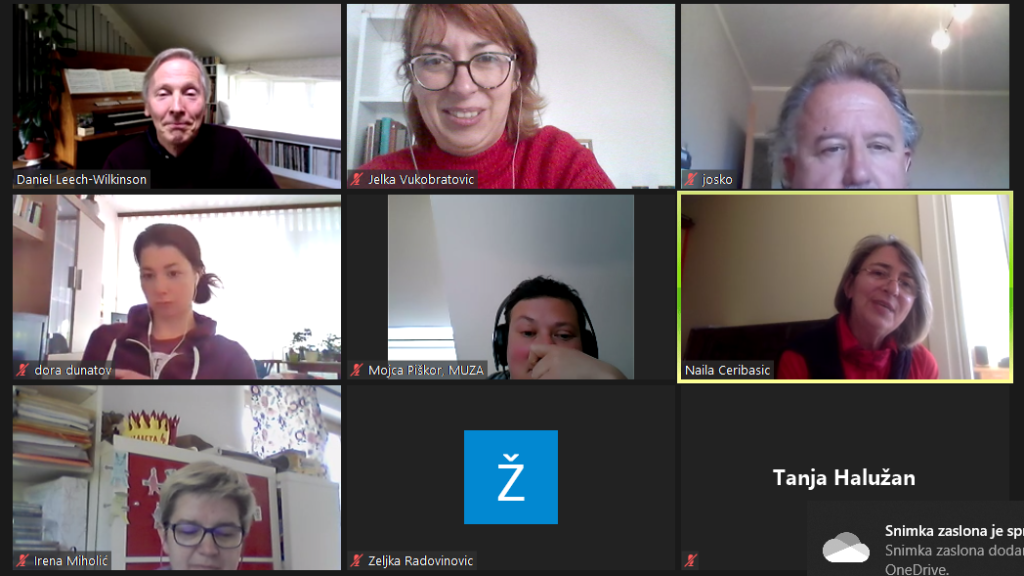
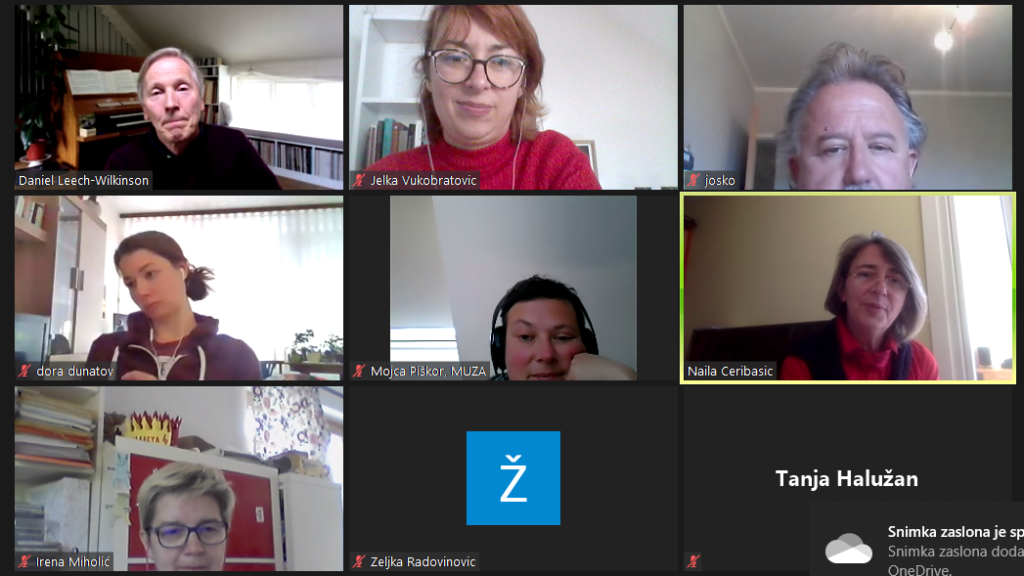
In two three-hour terms, on Monday and Wednesday, January 18 and 20, 2021, doc. dr. Drago Kunej held a workshop on the technical characteristics of 78 rpm music records. He is currently the head of the sound archive of the Institute of Ethnomusicology at the Scientific Research Center of the Slovenian Academy of Sciences and Arts in Ljubljana. He greatly contributed to the scientific field of old records through a three-year project “Sound material of gramophone records as a source of ethnomusicological and folkloristic research“, officially completed in April 2012. In the first part of the interactive workshop, held via online Zoom platform, he presented the development of various recording techniques, from the invention of phonographs to the invention of vinyl records. The second part was reserved for a detailed analysis of the complex information obtained from the label area of 78 rpm music records produced by the leading record companies.
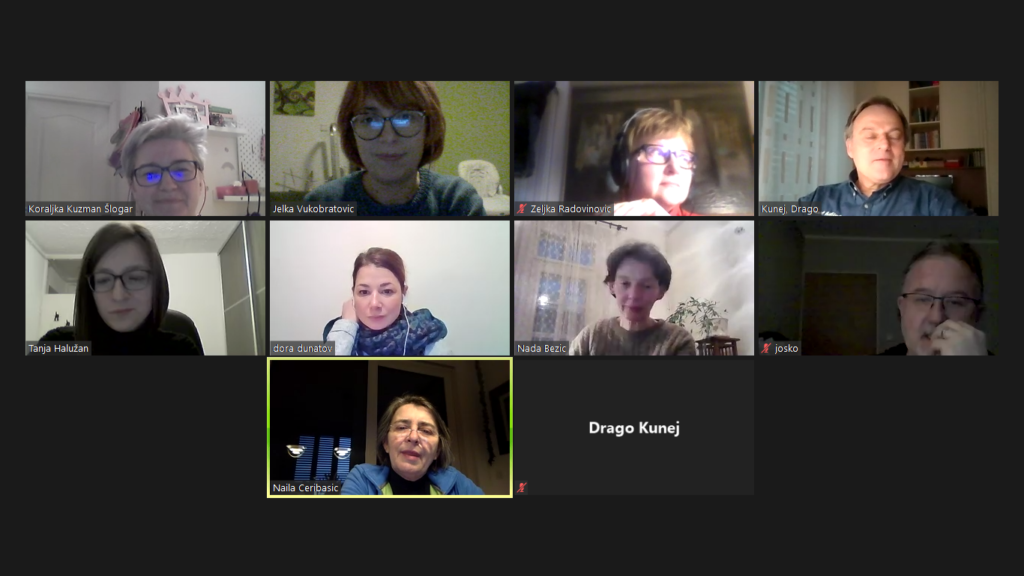
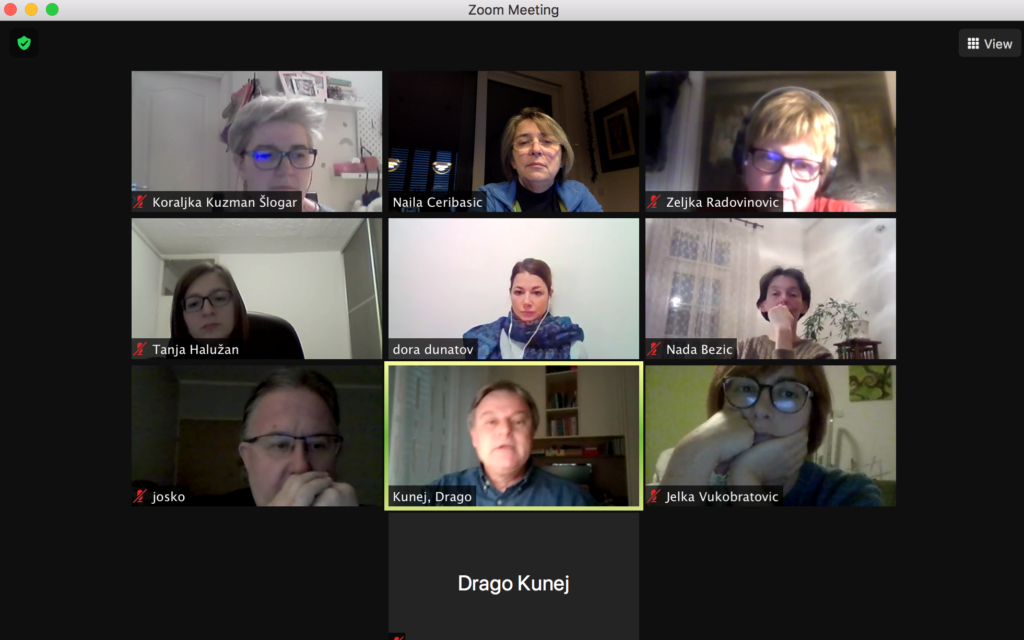
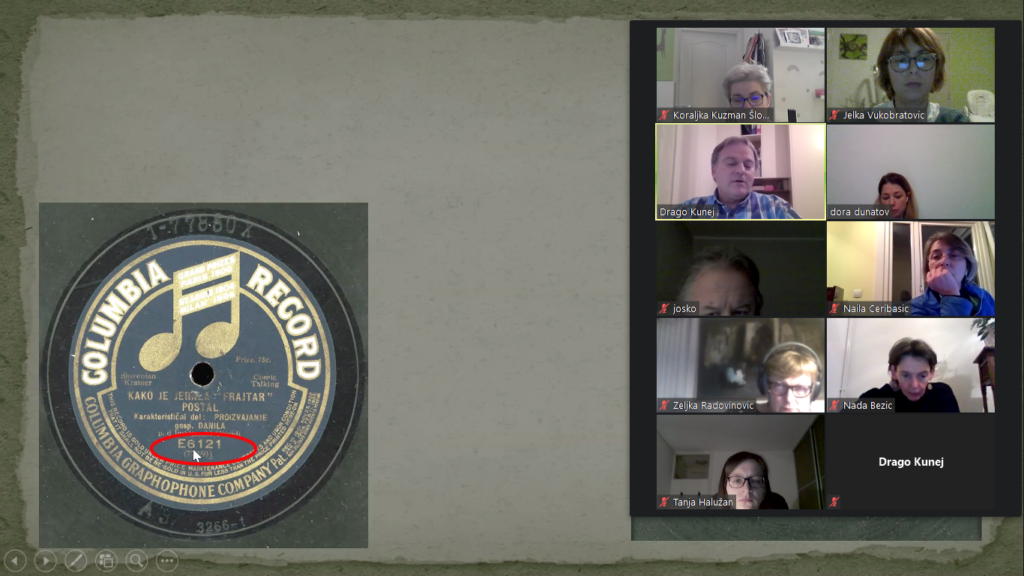
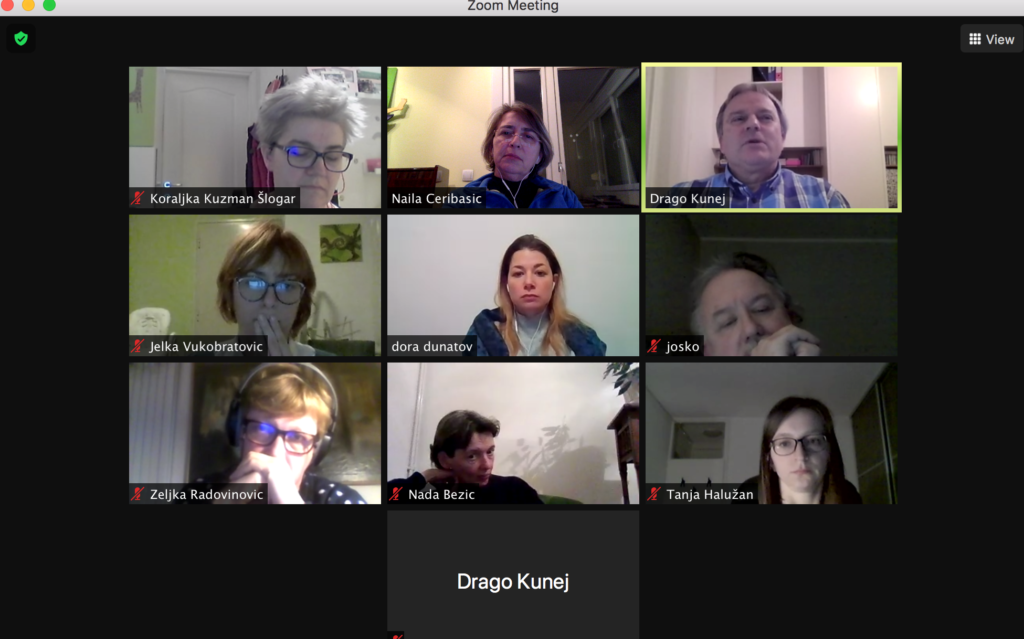
On Monday, November 16, 2020, a workshop was held with Peter Tschmuck. Tschmuck is head of the Department of Cultural Management and Gender Studies at the Vienna University of Music and Performing Arts. The focus of his research is the music industry, economics of copyright, cultural institutions, and cultural policy evaluation. He excelled in the research of creativity and innovation in the music industry, and his extensive study on the subject was published in 2003. The workshop was designed as an interactive dialogue between Tschmuck and project collaborators with comments and questions. It is worth noting the extremely comprehensive review and analysis of the music industry in the period from its beginnings to the late 1950s. See: Report (Croatian)
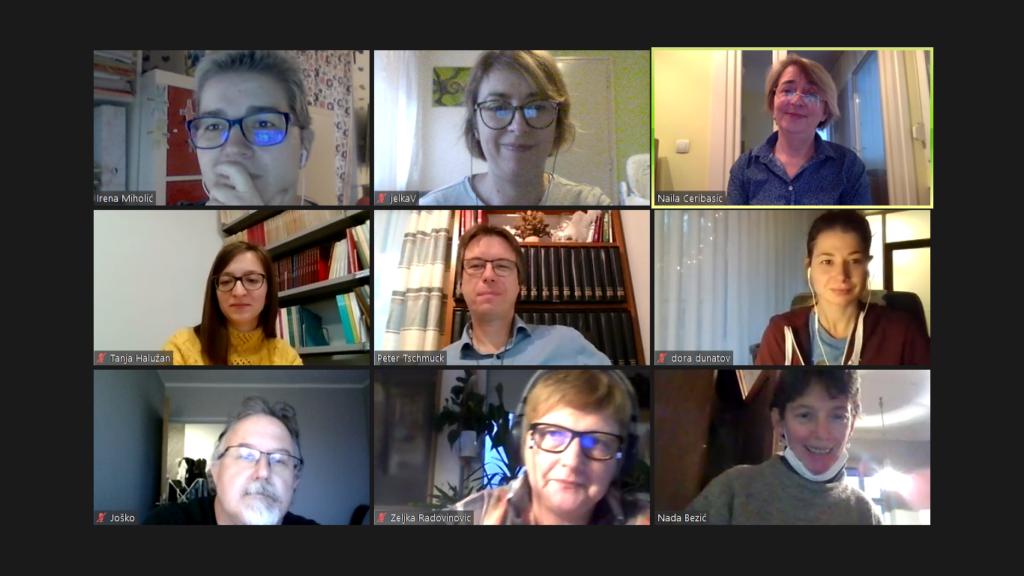
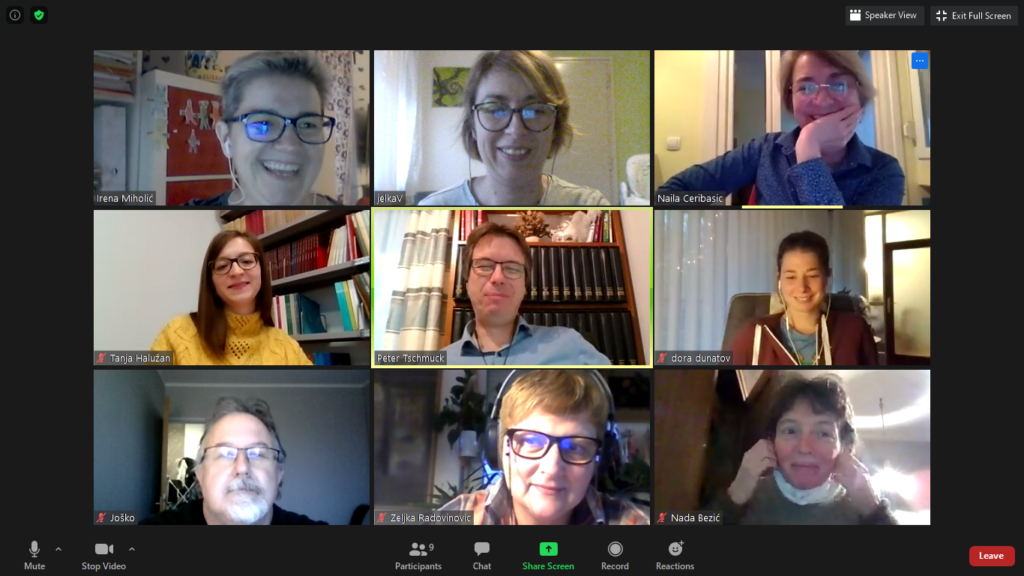
Study visits
The collaborators in the project will be trained at the research and archival centers that are most relevant to the topic of this research: the National Museum in Prague, the two popular music studies institutions in Liverpool (Institute for Popular Music at the University of Liverpool and the Harry McKinnel Popular Music Resource Centre at Liverpool Hope University), and two institutions in Washington D.C. (the Library of Congress, and the Smithsonian Institution.
See: Report (Cro)
See: Report (Cro)
See: Report (Cro)
Research workshops
Research workshops of the project collaborators will be held once a year. In them we will discuss: the devising the contents of the module Hrvatska e-diskografija (Croatian e-discography); issues of the record “filers”; the relationship between record industry and other driving forces of musical life; and opportunities for developing EU projects.
See: Report
See: Report (Cro)
See: Report (Cro)
See: Report (Croatian)
Work meetings
1st meeting (2020/2/20.)
2nd meeting (2020/6/3)
3rd meeting (2020/9/24)
4th meeting (2020/12/4)
5th meeting (2021/2/23)
6th meeting (2021/5/6)
7th meeting (2021/7/5)
8th meeting (2021/11/15)
9th meeting (2022/4/11)
10th meeting (2022/7/7)
11th meeting (2022/9/22)
12th meeting (2023/1/12)
13th meeting (2023/6/15)
14th meeting (2023/9/6)
15th meeting (2024/1/25)
16th meeting (2024/4/24)

